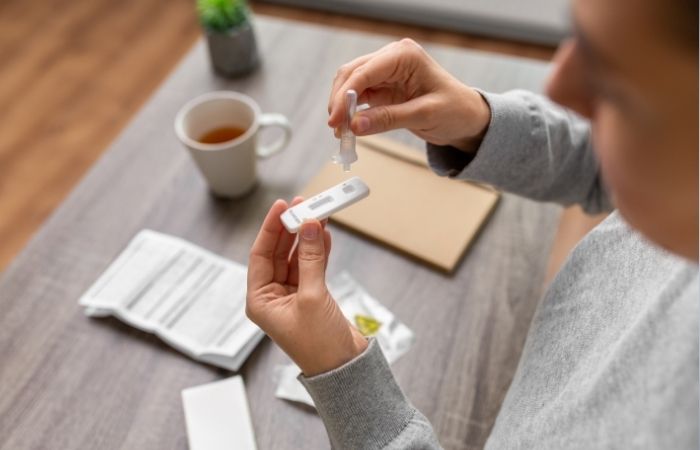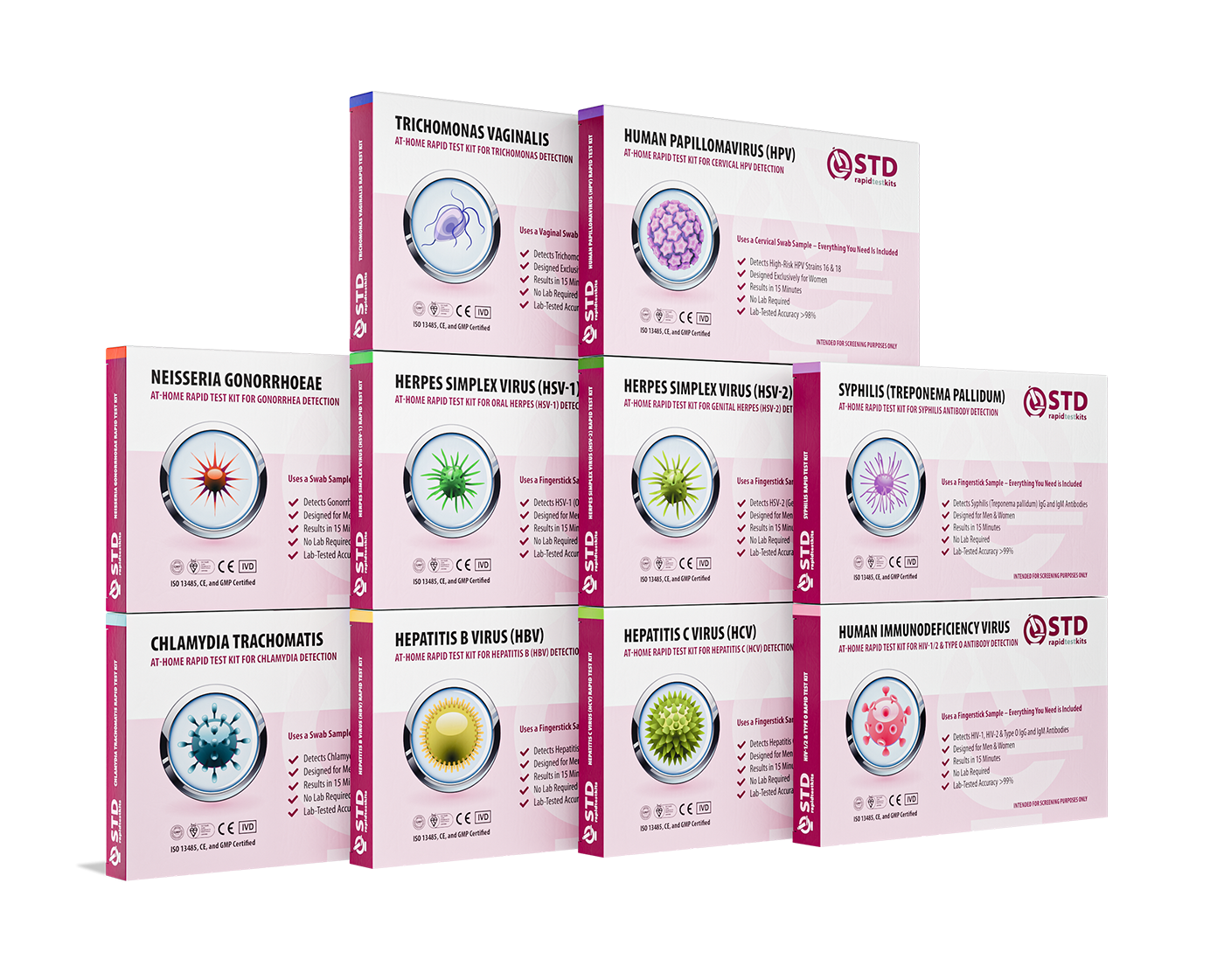Quick Answer: You don’t have to share your full medical history, but you should tell a new partner about any STD that could still be contagious or relevant to their risk. Use clear, calm language. Focus on facts and consent, not fear.
Why This Conversation Matters More Than You Think
You don't have to tell every new date about your STDs, but doing so is a big part of getting emotionally and morally close to someone. It's not only about taking risks; it's also about having faith. The Journal of Sex Research published a study in 2023 that found couples who talked about their past STDs early on were more likely to stay sexually active and emotionally connected over time.
Think of disclosure not as a warning, but as a boundary-setting move, an invitation for your partner to meet you in honesty. Most people aren't looking for perfection. They're looking for transparency. And yes, some reactions will be awkward. But far more often, disclosure opens space for consent, clarity, and even deeper connection.
If you’re asking, “But do I really have to tell them about that thing I had four years ago?”, you're not alone. The answer depends on timing, type of infection, and risk level. We’ll cover those distinctions next. But let’s first look at what disclosure feels like in real life, not theory.
Case Study: “I Waited Too Long, and It Got Awkward Fast”
Ty, 29, had been dating someone new for a month. He knew he needed to mention his past chlamydia infection, even though it had been treated and gone for years. But the longer he waited, the harder it got. “I didn’t want to ruin the mood, so I kept putting it off. Then one night she asked if I’d ever had anything, and I just froze.”
“She was upset that I hadn’t brought it up sooner. Not even because of the STD, but because it felt like I’d hidden something important.”
What Ty experienced isn’t uncommon. The fear of saying the wrong thing often leads to silence. But silence can read as dishonesty, especially when you’re building trust. In this article, we’ll help you find the language that feels natural to you, so you can talk about your history without shame or panic.
Let’s walk through what counts as relevant STD history, what doesn’t, and how to know what’s worth sharing with a new partner.

People are also reading: How Hepatitis B Can Spread Without Sex
What Counts as "Disclosure-Worthy" History?
Here’s the truth: not every infection you’ve ever had needs to be part of the conversation. If you were treated for gonorrhea at 19, haven’t had symptoms or reinfection since, and test negative now, you don’t “owe” anyone that detail unless you want to share it. But if you currently have an STD (even asymptomatic) or are managing a condition that could still be transmitted, it’s time to talk.
| STD | Still Needs Disclosure? | Why |
|---|---|---|
| Herpes (HSV-1/2) | Yes | Ongoing risk of viral shedding, even without symptoms |
| HPV | Sometimes | Depends on strain, time since diagnosis, and partner’s vaccination status |
| Chlamydia | No (if treated) | Once cured, no ongoing risk unless reinfected |
| HIV (undetectable) | Ethically yes | “U=U” applies, but transparency is critical in new relationships |
| Syphilis | No (if treated) | Treatment clears infection, but reinfection is possible |
Table 1: When STD history is relevant to new partner conversations. Each case is unique, if you’re unsure, talk to your provider or testing center.
In short: disclosure is about present-day relevance. If something affects your partner’s risk today, talk about it. If it’s in your past and medically resolved, you can choose whether to share as part of your relationship story, but it’s not an obligation.
Check Your STD Status in Minutes
Test at Home with Remedium7-in-1 STD Test Kit

 For Men & Women
For Men & Women Results in Minutes
Results in Minutes No Lab Needed
No Lab Needed Private & Discreet
Private & DiscreetOrder Now $129.00 $343.00
For all 7 tests
When Should You Tell Them? (Hint: Sooner Is Gentler)
If you’re Googling “when do I have to tell someone about an STD,” chances are the moment’s already on your mind. And that’s good. Thinking about timing is half the battle. According to Planned Parenthood and multiple sex ed nonprofits, the most respectful time to disclose is before sex, especially before any skin-to-skin contact that might involve transmission risk. But that doesn’t mean first date energy or awkward over-dinner announcements.
Think of it this way: the closer you get to physical intimacy, the more vulnerable your partner becomes, emotionally and biologically. Disclosing early in the connection (but not necessarily on date one) lets you both make informed decisions. It also gives the relationship room to breathe before sex becomes the pressure point.
Here’s what often works best: bring it up when you feel the relationship shifting. That moment when kissing gets longer, when you start sleeping over, or when someone brings up sex in a teasing way. That’s your cue. Disclosure lands better when it feels like part of a bigger trust-building moment, not a roadblock or a last-minute confession.
What to Actually Say (And How to Say It)
This is the part most people dread. You’ve got the knowledge. You’ve made the decision. But now, how do you say it out loud without scaring them off or stumbling into shame?
Let’s be honest: no script fits everyone. But there are patterns that work, language that centers consent, keeps things clear, and removes apology. Here's a strategy: be short, factual, and grounded in care. Think 2–3 sentences, max. Then let them respond.
Here’s how that might sound in different scenarios:
| Situation | Example Script |
|---|---|
| Living with Herpes | “Before things go further, I want to share something. I have genital herpes. I’ve learned how to manage it, and I always want to be upfront. I’m happy to answer anything.” |
| Past STD, Now Cleared | “I had chlamydia a couple years ago. It was treated and cleared, and I test regularly. I just believe in being open.” |
| Waiting on Results | “Hey, I’m in the middle of a testing window, so I’d rather wait to hook up until I get my results. Just being safe for both of us.” |
| Unsure About Status | “I haven’t tested in a bit, so I can’t promise anything. If we’re going to be physical, I’d feel better if we both checked in.” |
Table 2: STD disclosure scripts that keep things human and honest. You can adapt these to your tone and relationship style.
You don’t need to over-explain. You don’t need to dump your entire sexual history. And you definitely don’t need to beg for understanding. Just give them the truth in a calm, respectful tone, and see what they do with it. If they freak out, that says more about them than it does about you.
How to Handle Reactions (Even the Tough Ones)
Let’s say it goes sideways. They pull back. They act weird. They ghost. What then?
First, give them space. Not everyone knows how to respond right away, especially if they’ve never had to think about STDs before. Sometimes people just need time to Google, process, or check in with their own fears. That doesn’t mean it’s a rejection. It means they’re human.
But if someone immediately judges you, accuses you, or treats you like damaged goods? That’s not your person. You just dodged a landmine.
Ellie, 26, shared her HPV status with someone new and was met with silence. “He said he didn’t want to ‘take on my problems,’ like I was some broken project,” she said. “I felt gross at first. But then I realized, he was never going to be the kind of partner who could handle real stuff.”
“Now when I share, I’m not scared. If someone can’t handle it, they’re not for me.”
What If You're Not Currently Infected?
This is where things start to get unclear. You might be wondering if you still need to talk about an STD you had in the past but don't have anymore. The short answer is that it depends on how comfortable you are, how much risk you're willing to take, and what your values are about honesty. If you've been treated, tested negative since then, and aren't showing any symptoms, there may not be a medical reason to tell anyone. But for some people, sharing is about getting closer to someone or avoiding awkwardness later if the topic comes up out of the blue.
Consider a scenario: you’re months into a new relationship. Everything feels right. One night, your partner casually mentions they’ve never had an STD, and asks about your testing history. If you withheld a treated gonorrhea case from years ago, suddenly the omission feels heavier than it would have if shared earlier. Not because it was dangerous, but because it now feels like a secret.
One way to handle this? Normalize your own story when discussing testing in general. For example: “Yeah, I had chlamydia a while ago, but it was caught and treated fast. I’ve been clear ever since, I test regularly.” This frames it not as baggage, but as a part of responsible adulthood. Most people will respond with some version of, “Oh same, I had a scare once too.”
If You're Not Sure of Your Status Yet
Maybe you're waiting for results. Or it’s been a while since your last test. Or you’ve had recent symptoms but aren’t sure what they mean. In that case, transparency isn’t just ethical, it’s protective. Not just for your partner, but for your peace of mind.
This is the time for a soft boundary: “I want to be physical with you, but I’m waiting on my latest test before I feel totally comfortable. Can we hold off until then?” That’s not rejection. That’s care. And most people will appreciate the clarity. If they push back or take it personally, that’s a red flag, because they’re showing you they don’t prioritize consent or safety.
You can also suggest testing together. Turn it into a wellness ritual, not a problem. “Hey, I was thinking of doing one of those at-home kits before we get any closer. Want to do one too?” It's 2025, normalizing joint testing is a love language.
If you're looking for discreet, FDA-approved at-home options, this Combo STD Home Test Kit checks for the most common infections and ships privately. Fast, clear answers. No awkward clinics.

People are also reading: How to Tell Someone You Have an STD
The Emotional Aftermath: You Shared. Now What?
Whether it goes great or weird or unresolved, disclosure stays with you. It can trigger relief, vulnerability, pride, regret, or all of the above. That’s normal. You're practicing a kind of courage that doesn’t get nearly enough credit.
After you’ve had “the talk,” do something grounding. Journal it out. Text a friend who gets it. Watch something funny. Touch base with your body and remind yourself, you didn’t do something scary. You did something strong.
And don’t be surprised if, days later, your partner brings it up again. That’s not a red flag. That’s part of the conversation deepening. Maybe they want more info. Maybe they read something and have questions. Maybe they’re just processing. Stay open, but protect your energy. You don't have to become their personal sex ed teacher unless you want to.
Real relationships aren’t built on flawless histories. They’re built on brave, awkward, honest conversations that say: I trust you with this. Do you want to walk with me?
Check Your STD Status in Minutes
Test at Home with Remedium10-in-1 STD Test Kit

 For Women
For Women Results in Minutes
Results in Minutes No Lab Needed
No Lab Needed Private & Discreet
Private & DiscreetOrder Now $189.00 $490.00
For all 10 tests
What If You Get Ghosted or Rejected?
Let’s be blunt. It happens. Some people ghost. Some people act like you just confessed to murder. And that sucks.
But here's what doesn't suck: knowing that your honesty filtered out someone who wasn't ready for real connection. If they vanish after you share your status, they were never your person. They were never safe enough for your body, your story, or your emotional reality.
You don’t need universal approval. You need mutual respect. Every time you disclose, you become a little more fluent in your own voice. The people who matter will meet you there.
STD Rapid Test Kits is here for that clarity too, whether you’re just starting to date, retesting after a scare, or managing a chronic infection with confidence. If your gut says it’s time for answers, listen.
FAQs
1. Do I really have to tell someone I had an STD if I’m fine now?
It depends. If you were treated, tested negative afterward, and there’s no ongoing risk? You’re likely in the clear medically. But emotionally? Some folks choose to share anyway, because vulnerability builds trust. If it might come up later, or if it lives in your body like herpes or HPV, it’s usually better to bring it up on your own terms.
2. Is there a right time to bring it up?
There’s no perfect moment, but there is a sweet spot: not on date one, not after you’re naked. Look for that shift, when things start getting more intimate, when the sleepovers begin or the chemistry’s clearly mutual. That’s when honesty hits differently. Before sex = respect. After sex = regret (for many).
3. What if I tell them and they disappear?
Then you just saved yourself from wasting time on someone who can’t handle grown-up conversations. Seriously. Rejection stings, sure. But it’s also a shortcut to clarity. You deserve a partner who listens, not vanishes. If they ghost after honesty, they were never safe to begin with.
4. How do I even start the conversation without it being super awkward?
Keep it short. Keep it real. Try something like: “Hey, before we get physical, I want to be up front, I’ve had X. It’s managed now, and I always take precautions. If you have questions, I’m here for them.” You’re not writing a medical memoir. You’re inviting dialogue.
5. Can I just send a text instead?
You can. Sometimes text takes the edge off. If you’re nervous, write it down, send it, and offer to talk in person later. Plenty of people process better that way. Just don’t ghost your own message, follow up. Own it. That’s what makes it brave.
6. What if I’m not sure if I still have it?
Then it’s testing time. No shame, just info. Until you know, assume there could be risk. You can say, “I haven’t tested in a while and want to do that before we hook up. I care about doing this right.” It’s not a red flag. It’s respect, wrapped in accountability.
7. Is it possible to have an STD and not know it?
Oh, absolutely. Most people who pass on infections have no clue they’re carrying anything. Chlamydia and gonorrhea are masters of stealth. That’s why regular testing matters, even if you feel totally fine. No symptoms doesn’t mean no risk.
8. What if they say something ignorant or rude?
That’s on them, not you. Take a breath. Walk away if you need to. You’re not here to educate someone who chooses judgment over compassion. But if they’re just confused or scared? Offer clarity, not shame. Most people just need a minute, and a little context.
9. Should I ask about their status too?
Hell yes. Disclosure goes both ways. You’re not the only one with a history. Ask, “When was your last test?” or “Are you up for testing together?” If they act defensive, that’s information. If they engage? That’s trust in action.
10. What if I’m scared no one will want me because of this?
Read that again, and notice the shame talking. You are not unlovable. You are not your diagnosis. The right person won’t just accept your truth, they’ll admire your courage. Every STD is manageable. The only thing that ruins connection is silence laced with fear. Keep talking. Keep choosing honesty. The right people will meet you there.
You’re Not a Warning Label, You’re a Whole Person
If you’ve had an STD, you might worry you’re “less than,” “damaged,” or “not worth dating.” But let’s be crystal clear: that’s shame talking. Not science. Not truth. Not love.
Many people have STDs or get better from them. Your medical history doesn't make you who you are; how you deal with it with courage, clarity, and care does. Every honest talk you have is a big step toward trusting yourself and other people.
Don’t wait and wonder, get the clarity you deserve. This at-home combo test kit checks for the most common STDs discreetly and quickly.
How We Sourced This Article: We combined current guidance from leading medical organizations with peer-reviewed research and lived-experience reporting to make this guide practical, compassionate, and accurate.
Sources
1. WHO – Sexually Transmitted Infections
2. CDC: STI Treatment Guidelines — Herpes
3. Medical News Today: How to Tell Someone You Have Herpes
4. American Sexual Health Association: Herpes and Relationships
5. NCBI: Partner Notification Methods to Prevent or Reduce STIs
6. CDC: STI Conversation Tips — Tell Your Partner
7. Verywell Health: How to Handle Dating With Herpes
8. NIH News in Health: Herpes Can Happen to Anyone
9. Canada.ca: Genital Herpes Counselling Tool
About the Author
Dr. F. David, MD is a board-certified infectious disease specialist focused on STI prevention, diagnosis, and treatment. He blends clinical precision with a no-nonsense, sex-positive approach and is committed to expanding access for readers in both urban and off-grid settings.
Reviewed by: Dr. S. Mendes, MPH | Last medically reviewed: November 2025
This article is for informational purposes and does not replace medical advice.










